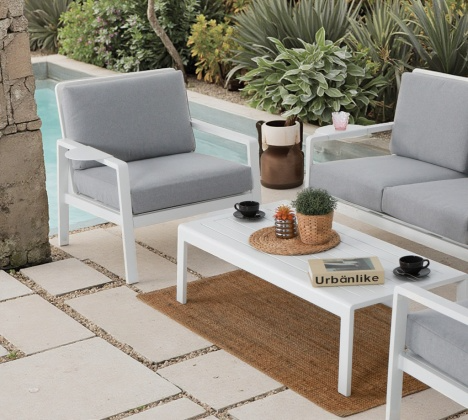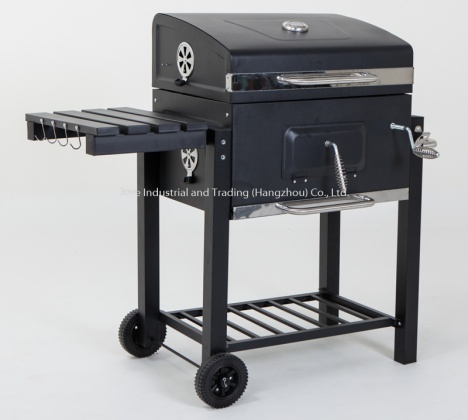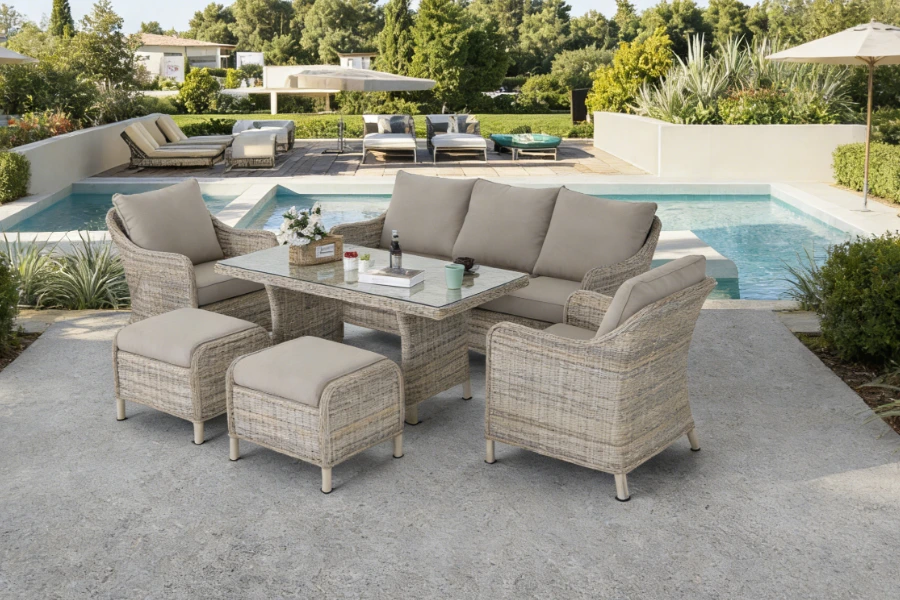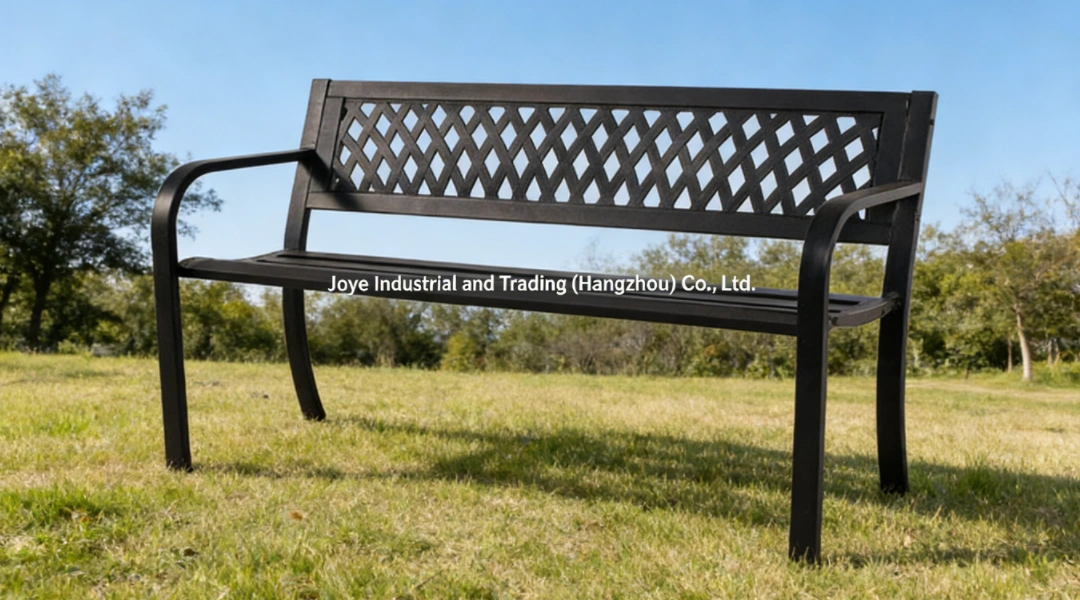How Do Importers Spot the Most Durable Outdoor Furniture for Harsh Climates
If you’ve been in the import game long enough, you know outdoor furniture isn’t just about looks. It’s about whether those tables and chairs can survive whatever the weather throws at them — and still look good when the customer unboxes them. A set that cracks or fades after one season? That’s a quick way to lose buyers. JoyeLeisure has been in this line for over 20 years. They deal with all sorts of climates, from humid coastal cities to dry, windy inland towns. Let’s talk about what to check before you load that container.

Why Does Climate Matter When Choosing Outdoor Furniture
Where your goods end up decides how long they’ll last. Sounds obvious, but it’s surprising how often importers forget this.
The impact of temperature extremes on materials
Hot summers can warp cheap plastics and bleach colors. Winters with deep freezes make brittle materials snap. I’ve handled PE rattan that stayed fine at -30°C — no cracks, still flexible. Try that with bargain-bin stuff and you’ll be sweeping up splinters.
How humidity and rainfall affect durability
If the market’s rainy, moisture is your biggest enemy. There was a whole batch of wooden benches come back swollen and moldy. Aluminum alloy with a decent powder coat? It’ll laugh at the rain, even with a bit of salt in the air.
The role of UV exposure in long-term performance
Sunlight’s sneaky. It doesn’t break things overnight, but in six months the bright red turns to washed-out pink. Solution-dyed acrylic fabric holds its shade for years — we’re talking 2,000 hours of UV testing without fading.
What Materials Stand the Test of Harsh Weather
Don’t just go by the catalog photo. Ask about the materials and how they’re treated.
Corrosion-resistant metals like aluminum and stainless steel
Greenville KD Aluminum Sofa Set are great for seaside cafés — light enough to move, tough enough for salty air. Stainless steel 304? That’s for the buyers who want a showroom shine in a hotel lobby without polishing every week.
UV- and mold-resistant PE rattan
HDPE rattan looks and feels like the real thing, but it won’t rot in the tropics. It was hosed down after a beach party and they dried like nothing happened.
High-performance outdoor fabrics and quick-dry foams
Quick-dry foam is a lifesaver. After a sudden rain, guests can sit down in under an hour. Regular foam? It’s still dripping by dinner.
How to Evaluate Construction and Design for Durability
Strong materials aren’t enough if the design’s weak.
Reinforced frames and load-bearing capacity
For commercial buyers, load testing is non-negotiable. There were dining chairs that handle 150 kg easy — perfect for busy bars or resorts.
Protective coatings and surface treatments
Powder coating sticks better and lasts longer than paint. In salty air, anodized aluminum or galvanized steel can be the difference between a good season and a rusty mess.
Weather-adaptive features like retractable canopies
Retractable canopies are underrated. A wind-resistant model rated to level 8 means fewer weather closures for restaurants — and less stress for the owner.
Which Certifications and Standards Should Importers Look For
Certs might sound boring, but they keep you out of trouble.
EN 581 safety standards for outdoor furniture
This covers everything from load-bearing to tipping resistance. You don’t want your furniture failing in the middle of a customer’s barbecue.
Fire-retardant requirements for upholstered items
Markets like the UK or California won’t even let you sell without meeting their flammability rules. Skip this and you risk an entire shipment stuck at port.
Environmental certifications like Oeko-Tex and ISO 9001
For buyers selling to eco-conscious customers, these are gold. They also tell you the supplier isn’t cutting corners on sourcing or production.
How to Balance Cost and Long-Term Value
Cheapest upfront is often most expensive later.
Total cost of ownership over product lifespan
A multi-functional outdoor kitchen cabinet in stainless steel might be double the price of a budget model, but you won’t be replacing it every other year.
Benefits of OEM/ODM for tailored durability
If your market’s coastal, get marine-grade coatings. For windy cities, ask for heavier frames. That’s the beauty of working with a factory that can tweak designs.
Minimizing replacement costs through quality investment
An Amazon Best Selling Charcoal Barbecue Grill with infrared heating might not be the cheapest, but it’ll last. Fewer returns mean happier customers and less headache for you.

What After-Sales Support Ensures Peace of Mind
Even the best gear needs a backup plan.
Warranty coverage and spare parts availability
A two-year warranty is solid, but it will be even better when spare parts come with the first shipment. It’s a small thing that saves big trouble later.
Maintenance guidance and installation support
Good suppliers send clear assembly videos. I’ve followed some in the warehouse — makes the job faster, even for new staff.
Long-term supplier relationships for consistent quality
Work with the same supplier long enough and you get perks: priority slots, early looks at new designs, and sometimes better payment terms.
How to Spot a Reliable Outdoor Furniture Supplier
Anyone can send you a catalog. Reliability’s in the details.
Proven track record with global clients
Supplying ALDI since 2018 with $8M+ per season? That’s not a fluke. That’s capacity and consistency.
Transparent quality assurance processes
Look for SOPs, testing reports, even destructive test results. If a supplier hides these, that’s a red flag.
Capability for innovation and customization
Suppliers who can whip up modular sheds or camping gear for niche markets are worth holding onto.
FAQ
Q1: How can I be sure the furniture will survive my local climate?
A: Ask for real test data and references from markets like yours. Photos from customers help too.
Q2: Can they handle DDP shipments?
A: Some can, but check early. Saves surprises when the goods arrive.
Q3: How fast can I get spare parts?
A: If you’re a repeat buyer, some factories send them in advance or hold stock for you.




